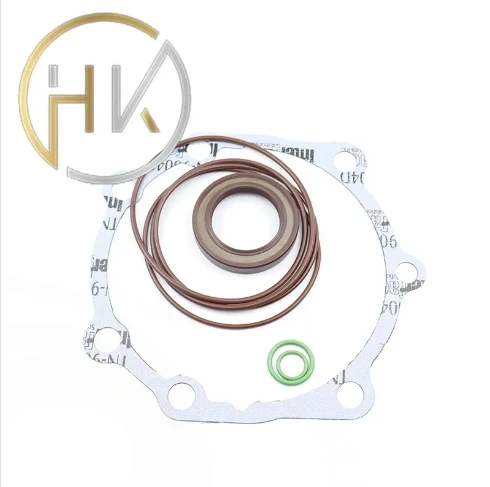Nov . 15, 2024 14:45 Back to list
motor seal
Understanding Motor Seals Their Importance and Functionality
Motor seals play an essential role in several mechanical applications, particularly in rotating machinery such as electric motors, turbines, and pumps. These seals are engineered to prevent the leakage of fluids, gases, and contaminants, ensuring efficient operation and longevity of the equipment. This article delves into the importance, types, functions, and maintenance of motor seals, underscoring their pivotal role in industrial applications.
Importance of Motor Seals
Motor seals are critical components that help maintain the integrity of machinery. They are designed to prevent the escape of lubricants and other essential fluids, which are necessary for the smooth operation of motors. Without adequate sealing, these fluids could leak out, leading to overheating, increased friction, and potential catastrophic failure of the motor. In addition to ensuring reliable operation, motor seals also contribute to safety by preventing hazardous substances from leaking into the environment, thus complying with regulatory standards.
Types of Motor Seals
There are several types of motor seals, each designed for specific applications and environments. The most common types include
1. O-Rings Circular in shape, O-rings are flexible seals that fit into a groove and create a tight seal between two parts. They are commonly used in hydraulic and pneumatic applications.
2. Lip Seals These seals feature a flexible lip that rides against the shaft, providing an effective barrier against contaminants and fluid leakage. Lip seals are widely used in rotating shafts in motors.
3. Mechanical Seals Used primarily in pumps and mixers, mechanical seals consist of two faces that slide against each other to create a tight seal, preventing leakage of fluids.
4. Gaskets While not seals in the traditional sense, gaskets are used to create seals between stationary parts. They are typically made from materials like rubber or silicone and are essential in preventing leakage in engines and pumps.
motor seal

5. Sealant Materials These are liquid or semi-liquid compounds applied to create a seal between surfaces. They are often used in conjunction with gaskets to provide an additional layer of protection against leaks.
Functionality of Motor Seals
The primary function of motor seals is to contain lubricants within the motor while excluding dirt, dust, and other contaminants from entering. In addition to this crucial role, motor seals also
1. Reduce Friction By keeping lubricants in place, motor seals function to minimize friction between moving parts, which helps in maintaining efficiency and performance.
2. Enhance Performance Effective sealing ensures optimal performance by maintaining the necessary pressure and avoiding loss of hydraulic power in hydraulic motors.
3. Prolong Lifespan By preventing leaks and contamination, motor seals help extend the lifespan of the motor, which reduces maintenance costs and downtime.
Maintenance and Care
Maintaining motor seals is essential for the optimal functioning of machinery. Regular inspections can identify wear and tear before it leads to significant issues. Operators should be aware of common signs of seal failure, such as leaks and unusual noises. When replacing seals, it’s crucial to select the right type and size for the application. Additionally, ensuring proper installation, using quality lubricants, and following manufacturer guidelines can significantly enhance the life of motor seals.
Conclusion
Motor seals are integral components that ensure the smooth and efficient operation of machinery that relies on moving parts. From preventing fluid leaks to enhancing performance, their role cannot be overstated. By understanding the various types, functionalities, and maintenance practices associated with motor seals, operators and technicians can ensure the longevity and reliability of their equipment, ultimately contributing to a safer and more efficient industrial environment.
-
Wiper Oil Seal: Our Commitment to Clean Hydraulics
NewsAug.13,2025
-
Hydraulic Oil Seal for Self Discharging Cars
NewsAug.13,2025
-
Hub Oil Seal for Agricultural Tractor Hubs
NewsAug.13,2025
-
Skeleton Oil Seal with NBR Material
NewsAug.13,2025
-
Rotary Lip Seal for High Pressure Applications
NewsAug.13,2025
-
Cylinder Seal Kits Our Legacy of Hydraulic Trust
NewsAug.13,2025
-
Unlocking the Potential of Hydraulic Systems with Essential Sealing Solutions
NewsAug.06,2025
Products categories
















